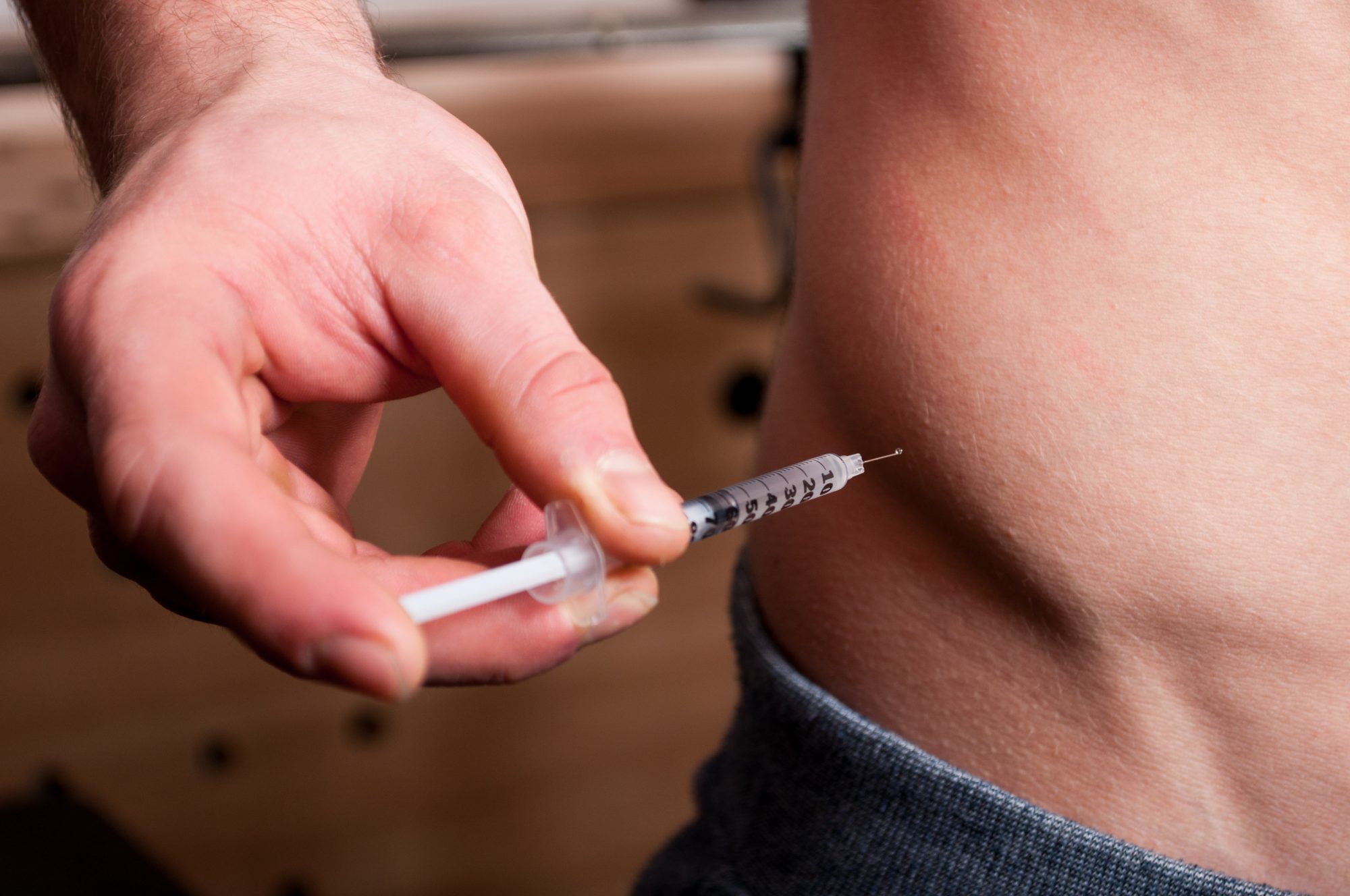Home>Misc>Featured>Why Does Long Distance Running Decrease Testosterone


Featured
Why Does Long Distance Running Decrease Testosterone
Modified: January 2, 2024
Read about the impacts of long distance running on testosterone levels and find out why this topic is featured in our comprehensive guide.
Introduction
Long distance running is a popular form of exercise that offers numerous health benefits, such as improving cardiovascular endurance, strengthening muscles, and enhancing mental well-being. However, recent research suggests that engaging in intense and prolonged endurance activities like long distance running may have an unintended consequence – a decrease in testosterone levels.
Testosterone is a hormone that plays a crucial role in the body, particularly in men. It is responsible for the development of secondary sexual characteristics, such as muscle mass, bone density, and facial hair. Additionally, testosterone influences mood, energy levels, and libido. Maintaining optimal levels of testosterone is essential for overall health and vitality.
While there is a general consensus that regular exercise is beneficial for hormone balance, long distance running seems to have a unique effect on testosterone levels. Several studies have shown a correlation between endurance exercise and decreased levels of this hormone. This has sparked interest and concern among runners, coaches, and fitness enthusiasts alike.
In this article, we will explore the effects of long distance running on testosterone levels, delve into the underlying mechanisms, and discuss the potential health implications. Furthermore, we will provide strategies for long distance runners to maintain healthy testosterone levels and optimize their performance.
It is important to note that the information presented in this article is intended for educational purposes only and should not be considered a substitute for professional medical advice. If you have any concerns about your testosterone levels or health in general, it is always recommended to consult with a medical professional.
The Role of Testosterone in the Body
Before we delve into the effects of long distance running on testosterone levels, it’s important to understand the crucial role that testosterone plays in the body. Testosterone is a sex hormone primarily produced in the testes in men and in smaller amounts in the ovaries and adrenal glands in women.
In men, testosterone is responsible for the development of primary and secondary sexual characteristics, such as the growth of the penis, testes, and facial hair during puberty. It also plays a vital role in maintaining muscle mass, bone density, and fat distribution. Additionally, testosterone influences mood, cognitive function, libido, and red blood cell production.
In women, although testosterone is present in much smaller quantities, it still plays a significant role. It contributes to sexual desire, bone density, muscle strength, and a sense of well-being.
Optimal testosterone levels are important for overall health and vitality in both men and women. Low testosterone levels can lead to various symptoms, including decreased muscle mass, fatigue, depression, decreased libido, and decreased cognitive function.
It should be noted that testosterone levels naturally decline with age. However, certain lifestyle factors, such as diet, exercise, and stress levels, can also influence testosterone production.
In the next section, we will explore how long distance running specifically affects testosterone levels and what mechanisms may be at play.
Effects of Long Distance Running on Testosterone Levels
Engaging in long distance running, which involves extended periods of cardiovascular exercise, has been found to have an impact on testosterone levels. Research suggests that the effects of long distance running on testosterone can vary depending on several factors, including training intensity, duration, and individual characteristics.
Several studies have indicated that prolonged and intense endurance exercise, such as long distance running, can lead to a temporary decrease in testosterone levels. This decrease may occur immediately after a run or persist for a period of time, ranging from hours to days.
One study conducted on male marathon runners found a significant decrease in testosterone levels after completing a marathon compared to their pre-race levels. The decrease was observed immediately after the race and persisted for up to three days. Similarly, another study on ultramarathon runners found a decrease in testosterone levels that correlated with the duration and intensity of the run.
The exact mechanisms behind the decrease in testosterone levels during long distance running are not yet fully understood. However, researchers believe that several factors may contribute to this phenomenon. One possible explanation is the increased cortisol production that occurs during intense and prolonged exercise. Cortisol is a stress hormone that is released by the adrenal glands in response to physical and mental stress. Elevated cortisol levels can suppress testosterone production.
Additionally, endurance exercise can lead to a decrease in the luteinizing hormone (LH) pulse frequency. LH is responsible for stimulating the testes to produce testosterone. A decrease in LH pulse frequency can result in lower testosterone levels.
Furthermore, the repetitive impact and stress placed on the body during long distance running may trigger an inflammatory response. Chronic inflammation has been associated with lower testosterone levels. Additionally, excessive endurance training can lead to overtraining syndrome, which is characterized by hormonal imbalances, including decreased testosterone levels.
It is important to note that while long distance running has been shown to decrease testosterone levels in some individuals, the effects can be highly individualized. Not every runner will experience a significant decrease in testosterone levels, and the impact of the exercise on hormone balance may vary depending on various factors like training volume, intensity, overall health, and genetic predisposition.
Mechanisms Behind the Testosterone Decrease
The decrease in testosterone levels observed in long distance runners can be attributed to several underlying mechanisms. While the exact mechanisms are complex and not fully understood, researchers have identified several factors that contribute to the testosterone decrease during prolonged endurance exercise.
One major factor is the increased production of cortisol, often referred to as the stress hormone. Intense and prolonged exercise, such as long distance running, can trigger the release of cortisol from the adrenal glands. Elevated cortisol levels have been shown to inhibit the production of testosterone. This is because cortisol and testosterone have an inverse relationship, meaning that when cortisol levels rise, testosterone levels tend to decrease.
Additionally, endurance exercise can disrupt the pulsatile release of luteinizing hormone (LH), which is essential for stimulating the production of testosterone. Prolonged endurance activities like long distance running can lead to a decrease in LH pulse frequency, resulting in lower testosterone levels.
The repetitive impact and stress placed on the body during long distance running can also lead to a state of chronic inflammation. Inflammation triggers the release of inflammatory cytokines, which can interfere with the production and regulation of testosterone. High levels of pro-inflammatory cytokines have been associated with decreased testosterone levels in various studies.
Another mechanism that may contribute to the testosterone decrease in long distance runners is the activation of the hypothalamic-pituitary-adrenal (HPA) axis. The HPA axis controls the body’s response to stress, including the release of cortisol. Prolonged endurance exercise can stimulate the HPA axis, leading to increased cortisol production and subsequently decreased testosterone levels.
Lastly, excessive endurance training and overtraining syndrome can disrupt hormone balance, including testosterone levels. Overtraining syndrome occurs when the body is subjected to prolonged and excessive exercise without adequate rest and recovery. This can result in hormonal imbalances, leading to decreased testosterone levels.
It is important to note that these mechanisms and their individual effects can vary from person to person. Not all long distance runners will experience a significant decrease in testosterone levels, and individual variations in genetics, training intensity, duration, and overall health can influence the impact on hormone balance.
Factors Affecting Testosterone Levels in Long Distance Runners
Several factors can influence testosterone levels in long distance runners. Understanding these factors can help runners better manage and optimize their hormone balance. Let’s explore some of the key factors that can affect testosterone levels:
1. Training Volume and Intensity: The volume and intensity of training play a significant role in testosterone levels. Excessive training volume without adequate recovery can lead to hormonal imbalances, including decreased testosterone levels. Finding the right balance between training and recovery is crucial to maintaining optimal hormone levels.
2. Nutrition: Proper nutrition is essential for maintaining testosterone levels in long distance runners. Consuming a well-balanced diet that includes an adequate amount of carbohydrates, proteins, healthy fats, and micronutrients can support hormone production and recovery.
3. Sleep: Sufficient sleep is crucial for hormone regulation and recovery. Lack of sleep or poor sleep quality can negatively impact testosterone levels. Long distance runners should prioritize getting enough quality sleep to support healthy hormone balance.
4. Stress Levels: Chronic stress can disrupt hormone balance, including testosterone production. High levels of physical, mental, and emotional stress can lead to increased cortisol levels, which can suppress testosterone production. Implementing stress management techniques, such as meditation or relaxation exercises, can help mitigate the effects of stress on hormones.
5. Age and Individual Variations: Testosterone levels naturally decline with age, and individual variations in genetics and hormone metabolism can influence testosterone levels in long distance runners. It’s important to recognize that not all runners will experience the same changes in testosterone levels and that individual differences should be taken into account.
6. Body Composition: Body fat percentage can have an impact on testosterone levels. Excessive body fat, especially around the abdomen, can lead to increased estrogen production and decreased testosterone levels. Maintaining a healthy body composition through a balanced diet and regular exercise can help support optimal testosterone levels.
7. Nutritional Supplements and Medications: Certain nutritional supplements and medications, such as anabolic steroids or corticosteroids, can affect testosterone levels. Long distance runners should be cautious when considering the use of such substances and consult with a medical professional.
It’s important for long distance runners to monitor their testosterone levels and be aware of the factors that can influence hormone balance. By adjusting training, nutrition, and lifestyle habits, runners can optimize testosterone levels and support overall health and performance.
Potential Health Implications of Decreased Testosterone
Decreased testosterone levels in long distance runners can have potential health implications that go beyond athletic performance. Testosterone plays a crucial role in various bodily functions, and imbalances can impact overall health and well-being. Let’s explore some of the potential health implications of decreased testosterone:
1. Reduced Muscle Mass and Strength: Testosterone is essential for muscle development and maintenance. Decreased testosterone levels can lead to a loss of muscle mass and strength, which can affect athletic performance and overall physical function.
2. Decreased Bone Density: Testosterone plays a vital role in maintaining bone health and density. Low testosterone levels can increase the risk of osteoporosis and fractures, especially in older individuals.
3. Fatigue and Low Energy Levels: Testosterone influences energy levels and overall vitality. Decreased testosterone levels can contribute to fatigue, low energy levels, and a general sense of lethargy.
4. Mood Changes and Depression: Testosterone has a significant impact on mood and emotional well-being. Low testosterone levels have been associated with mood swings, irritability, and an increased risk of developing depression.
5. Decreased Libido and Sexual Function: Testosterone plays a crucial role in sexual desire and function in both men and women. Decreased testosterone levels can result in a decrease in libido, erectile dysfunction in men, and reduced sexual satisfaction.
6. Cognitive Function: Testosterone also influences cognitive function, including memory, concentration, and cognitive processing speed. Decreased testosterone levels have been associated with cognitive impairment and a decline in cognitive performance.
It’s important to note that the impact of decreased testosterone levels can vary from person to person, and individual differences in hormone metabolism and overall health can influence the severity of these health implications.
If you are experiencing the symptoms mentioned above or have concerns about your testosterone levels, it is recommended to consult with a medical professional. They can perform a thorough evaluation and recommend appropriate interventions to support hormonal balance and overall health.
Strategies for Maintaining Testosterone Levels in Long Distance Runners
Maintaining healthy testosterone levels is crucial for long distance runners to support their overall performance and well-being. While long distance running may lead to a temporary decrease in testosterone levels, there are various strategies that runners can implement to help maintain optimal hormone balance. Here are some strategies to consider:
1. Proper Nutrition: Consuming a well-balanced diet that includes an adequate amount of carbohydrates, proteins, and healthy fats is essential for supporting hormone production and recovery. Include foods rich in zinc, vitamin D, and magnesium, which are all important for testosterone production.
2. Rest and Recovery: Incorporate sufficient rest and recovery periods into your training routine. Overtraining can lead to hormonal imbalances, including decreased testosterone levels. Listen to your body, take rest days, and prioritize sleep for optimal recovery.
3. Strength Training: Including strength training exercises in your regular routine can help maintain muscle mass and stimulate testosterone production. Focus on compound exercises such as squats, deadlifts, and bench presses to maximize hormonal response.
4. High-Intensity Interval Training (HIIT): Incorporating HIIT workouts into your training can be beneficial for hormone balance. HIIT has been shown to increase testosterone levels and improve cardiovascular fitness. Include short bursts of high-intensity exercise followed by brief recovery periods.
5. Stress Management: Implement stress management techniques such as meditation, deep breathing exercises, or yoga to help regulate cortisol levels and minimize the impact of stress on hormone balance.
6. Maintain a Healthy Body Weight: Excessive body fat, particularly around the abdomen, can contribute to decreased testosterone levels. Strive to maintain a healthy body weight through a balanced diet and regular exercise.
7. Limit Alcohol Consumption: Excessive alcohol intake has been associated with decreased testosterone levels. Limit your alcohol consumption or opt for healthier alternatives to support hormone balance.
8. Consult with a Medical Professional: If you have concerns about your testosterone levels or are experiencing symptoms of hormonal imbalance, it is recommended to consult with a medical professional. They can perform comprehensive assessments and provide personalized recommendations.
Remember, maintaining hormone balance is a complex process that can be influenced by various factors. It’s important to experiment with different strategies and listen to your body to find what works best for you. Each individual is unique, and what works for one person may not work the same for another.
Conclusion
Long distance running is a popular form of exercise that offers numerous health benefits. However, it’s important for runners to be aware of the potential effects of long distance running on testosterone levels. While engaging in prolonged endurance exercise can lead to a temporary decrease in testosterone levels, there are strategies that runners can employ to help maintain optimal hormone balance.
Understanding the role of testosterone in the body and the potential health implications of decreased levels is crucial. Testosterone plays a vital role in muscle development, bone density, energy levels, mood, sexual function, and cognitive function. Imbalances in testosterone levels can have a significant impact on these areas.
Factors such as training volume and intensity, nutrition, stress levels, and sleep can influence testosterone levels in long distance runners. By implementing strategies such as proper nutrition, rest and recovery, strength training, stress management, and maintaining a healthy body weight, runners can support their hormone balance and overall health.
It’s important for runners to listen to their bodies and find the right balance between training and recovery. Each individual is unique, and the impact of long distance running on testosterone levels may vary. If there are concerns about hormonal balance or symptoms of imbalances, it is always recommended to seek guidance from a medical professional.
Remember, optimizing hormone balance is just one aspect of overall health and performance. Long distance runners should also prioritize other factors like injury prevention, proper training technique, and overall well-being to achieve their goals successfully. By adopting a holistic approach to their training and lifestyle, runners can strike a balance that supports their performance, health, and happiness.









